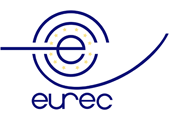menu
- Home
- National Information
- EC-Activities
- EUREC-Activities
- Legislation
- Training Materials
- Literature
- Events
- Newsletter
supported by:

Eurecnet - Training material details
Training material details
Manual for research ethics committees
Author(s): Eckstein, Sue
Document type: Book
Year: 2003
Pages: 558
Source: Faculty, university or academic institution: Centre of Medical Law and Ethics, King's College, London
Publishing house: Cambridge University Press (Cambridge)
Language(s): English
Classification
National background: Great BritainCategory: EU Training Material for Research Ethics
Subject areas: Ethical research (fraud and misconduct); Experimentation on human material; Human experimentation; Information (data protection, privacy etc.)
Content: Cultural specifics; Ethical theories; Important codes; Legal background; Normative reflections
Issues touched: Autonomy, respect, informed consent, subjects unable to consent, role of representatives Beneficence, non-maleficence, risk for the subject Justice, benefits/burdens, research without benefit for the subject, placebos/standard therapy Protection of privacy, data protection, biological material Vulnerable groups, soldiers, prisoners, pregnant women, elderly people International research, research in developing countries Social impact of research, economic benefits, risks for third parties Social background of research, conflicts of interest, researcher vs. doctor, commercialisation Fabrication, falsification, plagiarism Ethics committees, research protocols, publication of unethical trials
Audience: Members of ethics committees
Classification remarks: The manual is intended for members of research ethics committees. It is divided into two parts: part I contains 24 chapters on various aspects of research on humans. Part II contains 45 (!) national and international guidelines.
Estimation
Theoretical quality remarks: The 24 chapters of part I cover many issues relevant to the ethics of research. Section I briefly explores more general aspects (the ethics of clinical research, research ethics committees and the law, regulation of medical research: a historical overview). Section II focuses on different aspects of the research process and different kinds of research. In section III ways of protecting research participants are discussed. Finally, section IV is concerned with research in developing countries.Overall estimation: recommendable
Estimation remarks: The manual provides articles on many relevant issues as well as an extensive compilation of national and international guidelines. Primarily intended as a handbook for ethics committee members it might also serve as a source for research ethics training courses.
